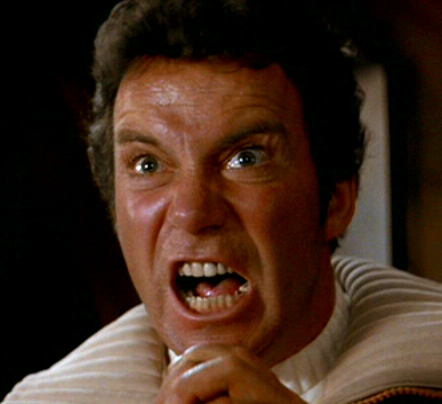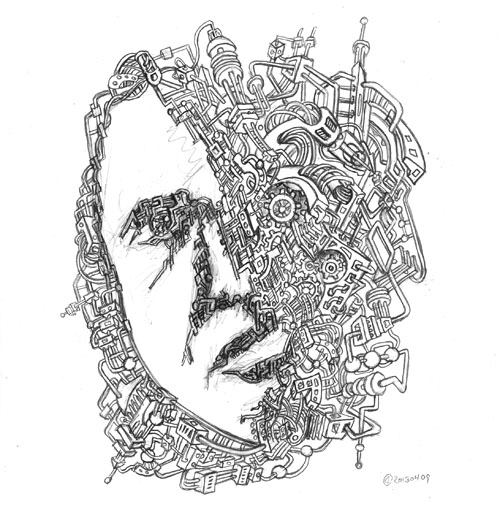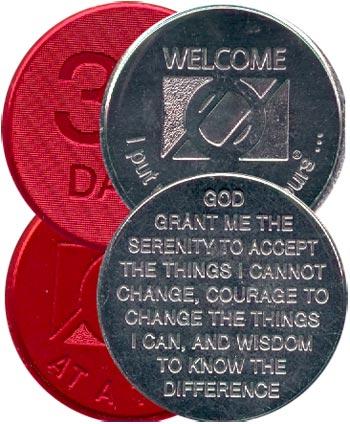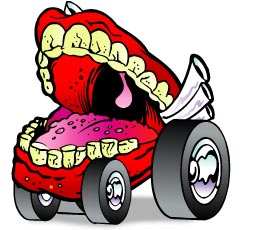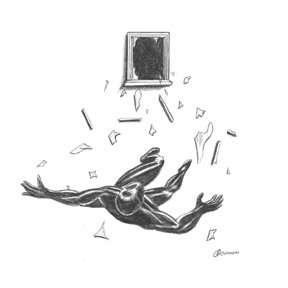This week’s news coverage of the Boston Marathon bombings and the aftermath only hardened the feelings I express below. I have nothing but contempt for the big three: CNN, Fox and MSNBC. Local news did a far more admirable job covering this tragedy.
I find myself increasingly outraged at what I see on the TV news channels lately. I’m not talking about the news itself, but the way it’s presented with loud graphics, dramatic music and louder newscasters.
To watch CNN, Fox News, MSNBC or any number of local news affiliates is to be rattled. And, in fact, before I learned to turn it off, I couldn’t take my eyes away. It took an already depressed, out-of-control person and made him three times worse.
I should probably laugh it off and move on. But the fact of the matter is that this stuff used to leave me a crippled mess.
When you have an out-of-control case of obsessive compulsive disorder (OCD), you latch onto all the things you can’t control and worry about them nonstop. Nothing feeds that devil like the cable news networks. I’ve written before about the anxiety and fear I used to have over current events. I would think about all the things going on in the world over and over again, until it left me physically ill. I personally wanted to set everything right and control the shape of events, which of course is delusional, dangerous thinking.
Right after 9-11 I realized the obsession had taken a much darker, deeper tone. This time, I had the Internet as well as the TV networks to fill me with horror. Everyone was filled with horror on 9-11, obviously, but while others were able to go about their business in a depressed haze, I froze. Two weeks after the event, I refused to get on a plane to go to a wedding in Arizona. Everyone was afraid to fly at that point, but I let my fear own me. It’s one of my big regrets.
Part of the problem was my inability to take my eyes off the news. To do so for a five-hour plane ride was unthinkable. To not know what was going on for five hours? Holy shit. If I don’t know about it, I can’t control it!
I really used to think like that.
The start of the War on Terror brought out the rock-bottom worst in TV news. Every possible danger, no matter how unsupported by facts, was flashed on the screen with the urgency of imminent doom. I remember how Wolf Blitzer of CNN used the word “alarming” just about every night as the analysts discussed the hundred different ways the terrorists could really kick us in the balls next time:
— Releasing smallpox back into the air
–Detonating a nuclear device in front of the White House
–Diving planes into nuclear power plants.
In a time when the right answer would have been to hold our heads up and show the bad guys we don’t hide in the face of danger, this stuff brought out the worst in us, especially an already emotionally sick guy like me.
It didn’t have to be matters of war and peace, either.
In the weeks leading up to the 2004 presidential election, all the TV news commentators could talk about was the last election and how there was growing fear that a repeat of the electoral deadlock of 2000 would repeat itself.
Analysts talked about all the glitches that could happen as if they were watching a knife go into their chest. Already consumed by fear and anxiety, I freaked over this, too.
A year later, right after Hurricane Katrina hit, TV news stations felt the need to go over every conceivable disaster that might wipe us out next: Bird flu, nuclear plant meltdowns, earthquakes and other unpredictable events. It made a mess of me.
I can’t pinpoint the exact period where I decided this stuff no longer had meaning to me, but I think it was around the time I started taking the right medication for OCD in early 2007.
All of the sudden, I didn’t care as much about watching the news. I simply lost interest. And I’ve been a lot happier as a result.
The timing may be a coincidence. My Faith also started to deepen around that time, and the more I learned to trust God and let go of the things I couldn’t control, the more meaningless CNN’s loudness became.
Today, I’m as addicted to the Internet as I used to be to the TV. But I don’t really watch the news online. I’ll quickly glance over the headlines and maybe stick around if a political analysis intrigues me enough. But I’m much more likely to get sucked into all the music videos available on YouTube or who is saying what on Facebook and Twitter. That too is something I know I need to be careful of, but it’s fair to say that that stuff doesn’t send me into shock and panic like CNN and Fox used to.
Somewhere along the way, as I watched news reports of bomb explosions and natural calamities half a world away, I looked up and realized everything outside my living room window was tranquil and uneventful.
I’ve operated on that mindset ever since.
Call me apathetic or ignorant. Tell me I’m in denial.
All I can tell you is that things in the world look much different to me now than they did just a few short years ago.
And though I consumed more news this past week than I have in a long time, I still managed to walk away quite a bit. That’s probably why I’m able to type this without my hands shaking.


